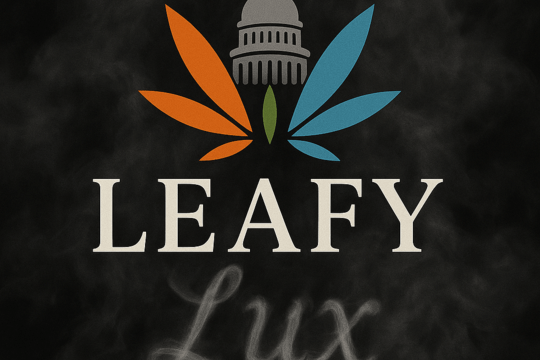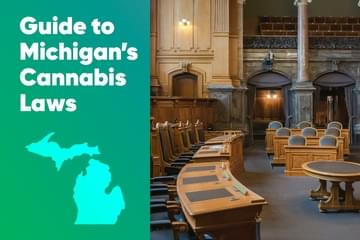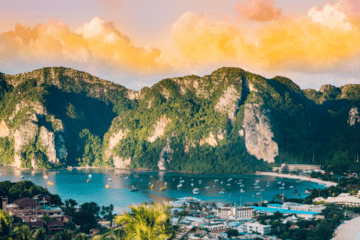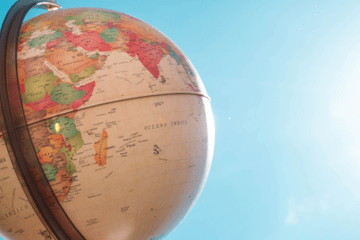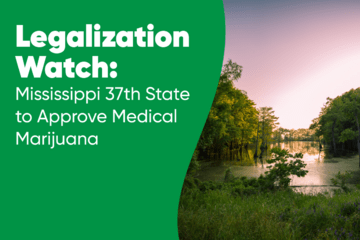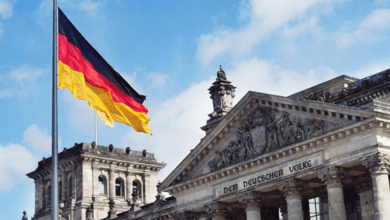
German Ganja: Germany's Government Set to Legalize Cannabis Nationwide
Published on 2/8/22
You can be forgiven for not paying attention to politics in Germany, a country whose politicians rarely make headlines, especially since their political system involves nearly a dozen different parties all competing for control of their Bundestag legislature. With former chancellor Angela Merkel stepping down after almost two decades in power, the November election ushered in new parties and new leaders headed by the Social Democratic Party (SDP). The SDP has many priorities on their plate for the world's 19th-largest nation and 4th-largest economy, but one critical reform is the news that they will push forward legal marijuana. It has already been a productive election year for many states making marijuana decriminalized or legalized. As Germany legalizes cannabis, it further represents a significant milestone in both European and international drug law, one that will further the global legalization of marijuana.
Dank Deutsche
 Unsplash
UnsplashGermany is one of the largest and most important nations in Europe and the world. Although it is slightly smaller than the state of Montana, it boasts some of the world's most advanced technologies and industries, from Volkswagen cars to their $4 billion space program. Germany's wealth also greatly influences Europe more broadly, meaning that laws passed in Germany often trickle over to other European nations. Today, Germany is a popular tourist draw for its thousands of years of history, fantastic beer, autobahn highways with no speed limit, and beautiful mountain resorts in the Alps.
German drug laws have decriminalized cannabis, permitting its citizens to use it without strict legal consequences. Furthermore, a thriving medical marijuana market has made medical weed legal. Like many other nations, however, recreational cannabis that is 100% legal to purchase and enjoy has been a pipe dream for a long while. Some of Germany's neighbors, most notably the Netherlands, are high-profile countries where weed is legal for recreational use. Legal weed in Europe has many different restrictions, just as legal weed in the U.S. varies from state to state.
New Rulers, New Rules
 Unsplash
UnsplashThe new German government's official decision is to "introduce the regulated sale of cannabis to adults for consumption purposes in licensed stores." This most likely means that the process will function similar to American states, like California or Colorado, where cannabis has been legalized for a while. Specific dispensaries and grow-ops will compete for licenses to distribute cannabis directly to customers. Marketing, finance, and community outreach that were previously outlawed will now be engaged.
It's a big break from previous German drug laws. Germany had outlawed cannabis prior to the mid-1990s. By 1994, the country had stepped down cannabis from its annex I to annex II (roughly equivalent to the U.S. federal schedule system, which places cannabis at the same levels as heroin or cocaine). By 1998, it had moved down to annex III, meaning it was available with a doctor's prescription for conditions like anxiety or glaucoma. However, by 2008, just six Germans in the entire nation had the necessary prescriptions to get medicinal marijuana. It took a while for Germany's cannabis legalization to make its way into the mainstream, even with participation by activists: the "Hanfparade" (hemp parade) in Berlin takes place each year in April, and in 2022 will have its 25th anniversary. By 2011, the Global Marijuana March began taking place in Germany. Hemp-friendly food stores, called reformhaus, serve environmentally oriented, health-focused foods with low THC concentrations.
European Tours
 Unsplash
UnsplashPot-happy tourists may soon fill up German cities. Germany is both behind some competitors but well ahead of others. Luxembourg's legalization efforts will come onto the books before Germany, making it the first European country to remove all barriers to recreational cannabis use. While the Netherlands is famously pot-friendly, it restricts the sale of cannabis to specific cafes, meaning that you cannot get a joint and bring it back home. Pot in next-door France remains illegal for recreational use, although it is nevertheless one of the most popular illegal drugs. Portugal was the first European nation to decriminalize marijuana (as well as all other types of narcotics) but still has not given full legalization, so it is not possible to buy it except from private growers.
Draconian pot laws are common in some European countries, even though the continent is famous for its liberality. Weed is illegal to grow, sell, or smoke in the United Kingdom. Ireland outlaws the use of cannabis for recreational use, although it is legal for medicinal purposes. Although it is fairly rare, Poland has legalized medicinal cannabis and slams recreational users with long jail sentences or high fines. Switzerland decriminalized marijuana in 2012, but possession of cannabis results in a fine of about $100.
Have you ever been to Germany? Have you ever been to another country where cannabis is decriminalized or legal and enjoyed the experience? Let us know in the comments below!








